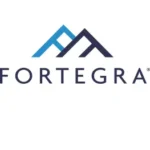Taiwan Semiconductor Manufacturing Company (TSMC), a global leader in chip manufacturing, is making significant strides with its Arizona-based Fab21 facility. According to TechNews, Fab21, currently undergoing intensive equipment installation, is establishing a small-scale trial production line, with equipment from various suppliers expected by the end of 2023. Industry insiders project trial production to commence in the first quarter of 2024, primarily driven by orders from U.S. clients.
Among the notable U.S. clients, NVIDIA’s CEO Jensen Huang has expressed openness to placing orders with Fab21. Additionally, Intel is reportedly planning to outsource its core computing needs to TSMC’s N3B process, with orders likely directed to the Arizona facility in the near future.
Despite these developments, the initial capacity increase for Fab21’s 4-nanometer process is set to be gradual, mainly due to cost considerations. This cautious approach is expected to continue into the second phase, which will focus on the 3-nanometer production line.
TSMC’s journey in Arizona began with the announcement of the 12-inch wafer Fab21 in 2020. Originally intended to produce on a 5-nanometer process with a monthly capacity of 20,000 wafers, TSMC later upgraded to a 4-nanometer process. However, a shortage of skilled installation workers in the region led to a delay in mass production, now rescheduled for 2025.
The second phase, focusing on the 3-nanometer process, is slated for mass production in 2026. The total investment for both phases of the project is estimated at a staggering $40 billion.
Industry sources point out that Fab21’s manufacturing costs are higher than TSMC’s facilities in Taiwan, and its capacity is not as competitive. Consequently, orders from U.S. clients are largely seen as a response to U.S. government requirements, with the majority of TSMC’s production still centralized in Taiwan.
TSMC’s expansion into the U.S. with Fab21 marks a significant move in the semiconductor industry, aligning with growing demands for local chip production and the strategic need to diversify manufacturing locations. The Arizona facility is poised to play a crucial role in meeting the chip needs of U.S. clients while contributing to the broader landscape of global semiconductor production.





